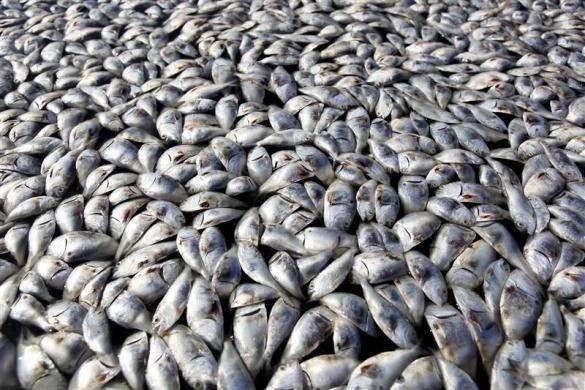New Zealand Scientist Says World Will See Less Fish In The Future; Fish Dumping In Auckland Penalised

The world will see fewer fish in the ocean. New Zealand scientist and professor Paul Moughan from the Massey University’s Riddet Institute said the human diet of the future will have to adapt.
Radio NZ reports that the global population is expected to grow from seven billion to 10 billion in the next 35 years. Since the fish will be dwindling in numbers, there will be increasing demand for other food alternatives especially those rich in protein to meet the requirements of a healthy and balanced diet.
Moughan said the future population will have to deal with a world with less water, fewer land and greater changes in climate. He added that countries will have to be smarter in maximising food production and limiting waste.
The professor recommended that Pacific nations like New Zealand will need to consider the use of sustainable fishing practices so marine resources will be preserved in the future. Moughan has been picked to join a research firm in Germany in June to help address world hunger.
Meanwhile, New Zealand continues to protect its oceans from illegal fishing practices. A trawler has accidentally dumped a big amount of gurnard in the Tasman Sea off the west coast of Auckland. Industry sources said the unnamed vessel is less likely to be prosecuted.
The Ministry for Primary Industries has started an investigation after the boat reported the dumping of small and young red gurnard. Since the unnamed vessel reported the incident, the company that operates can avoid prosecution but it may have to pay a penalty based on the value of the fish it dumped in the ocean, reports Stuff.
Sanford, the biggest fishing company in Auckland, said the recent fish dumping was not in any way related to their operations. Labour MP Rino Trikatene has claimed that MPI pulled out its fisheries officers from duty to focus on the fruit fly incident in Auckland.
He added that the New Zealand government needed to step up efforts to enforce regulations in inshore fishery. Trikatene said the fisheries officers should be doing their job instead of “hunting” fruit flies since he believes in the sound management of fisheries.
To report problems or report feedback on this article, contact: r.su@ibtimes.com.au





















